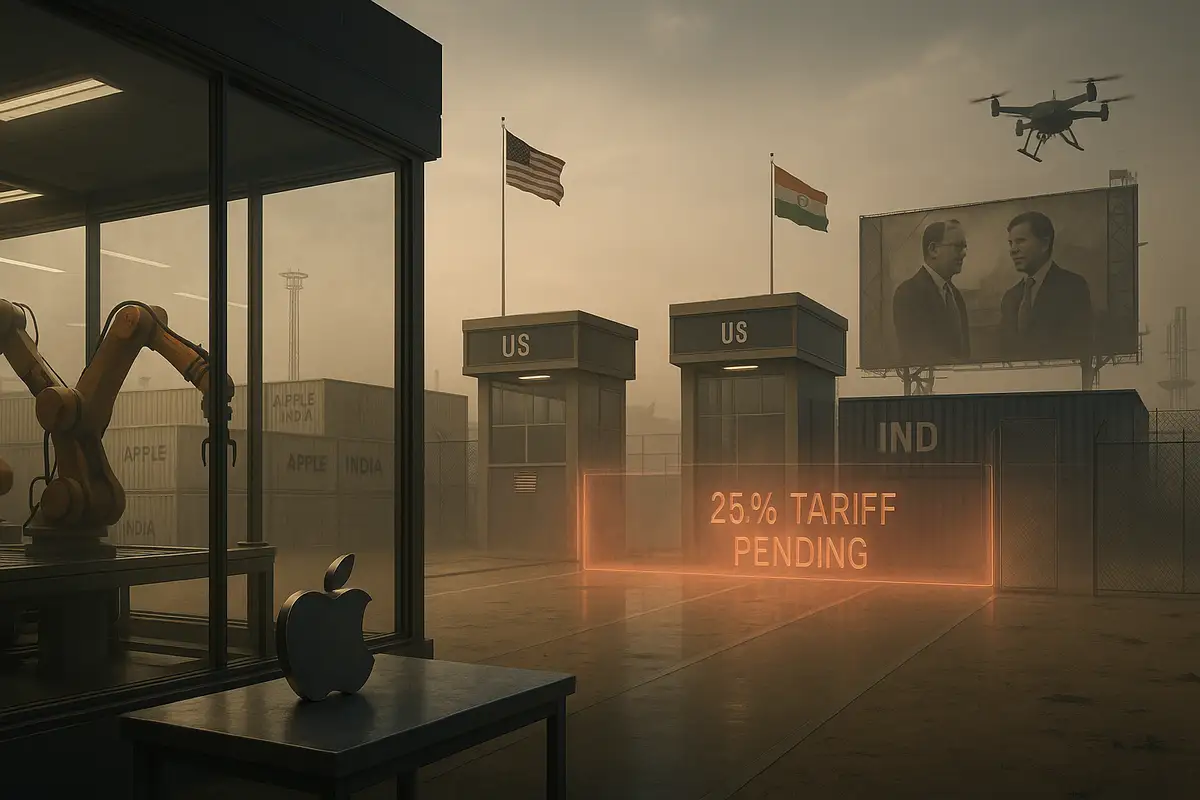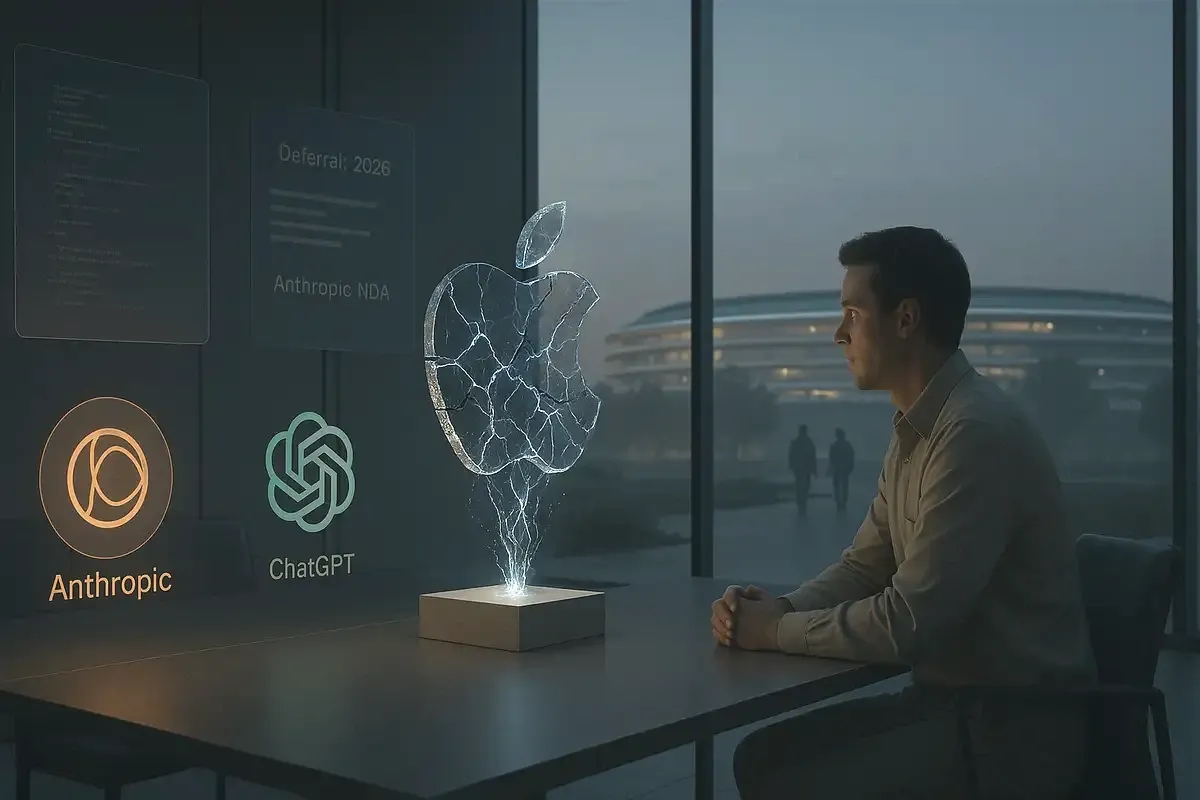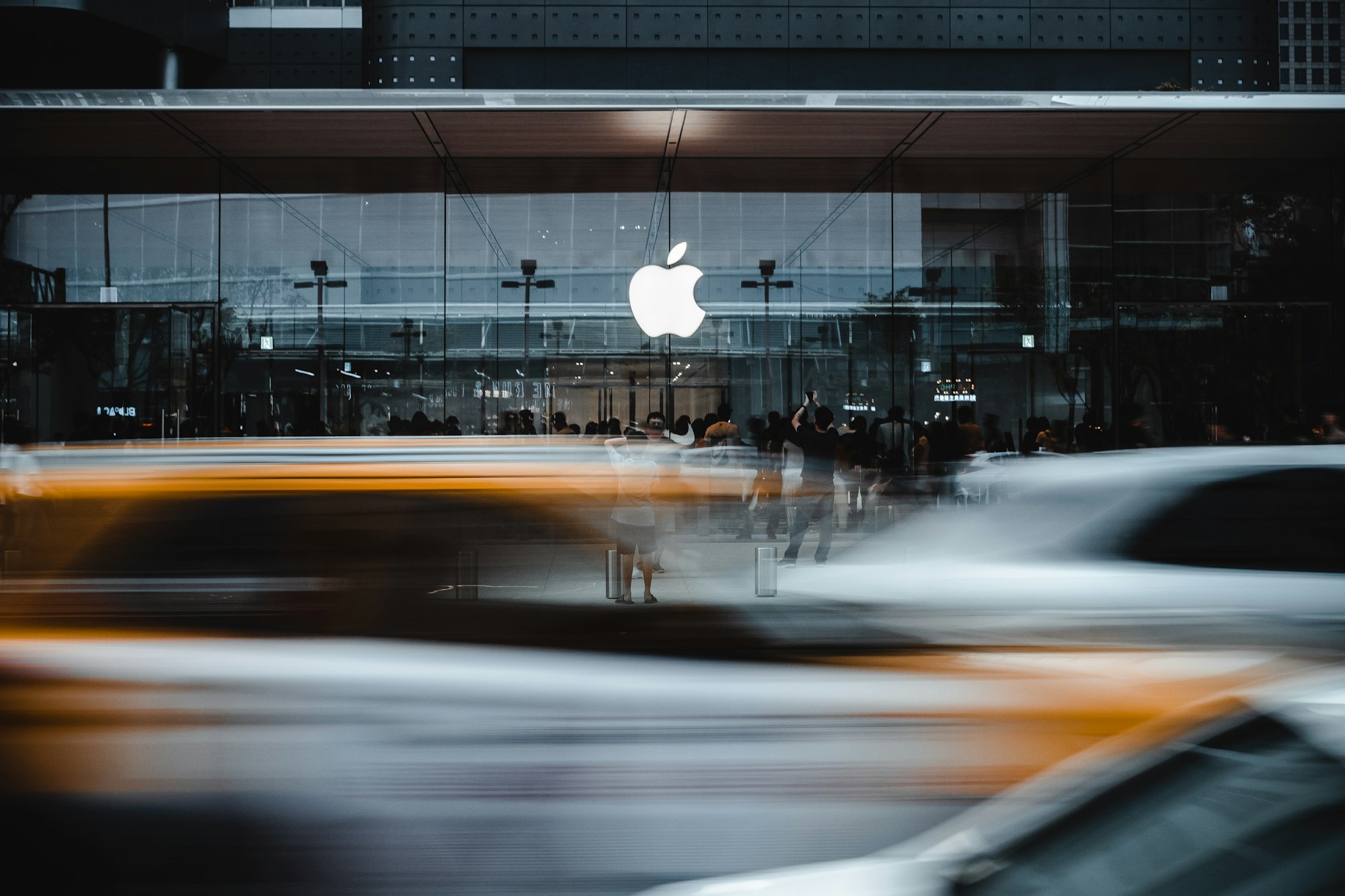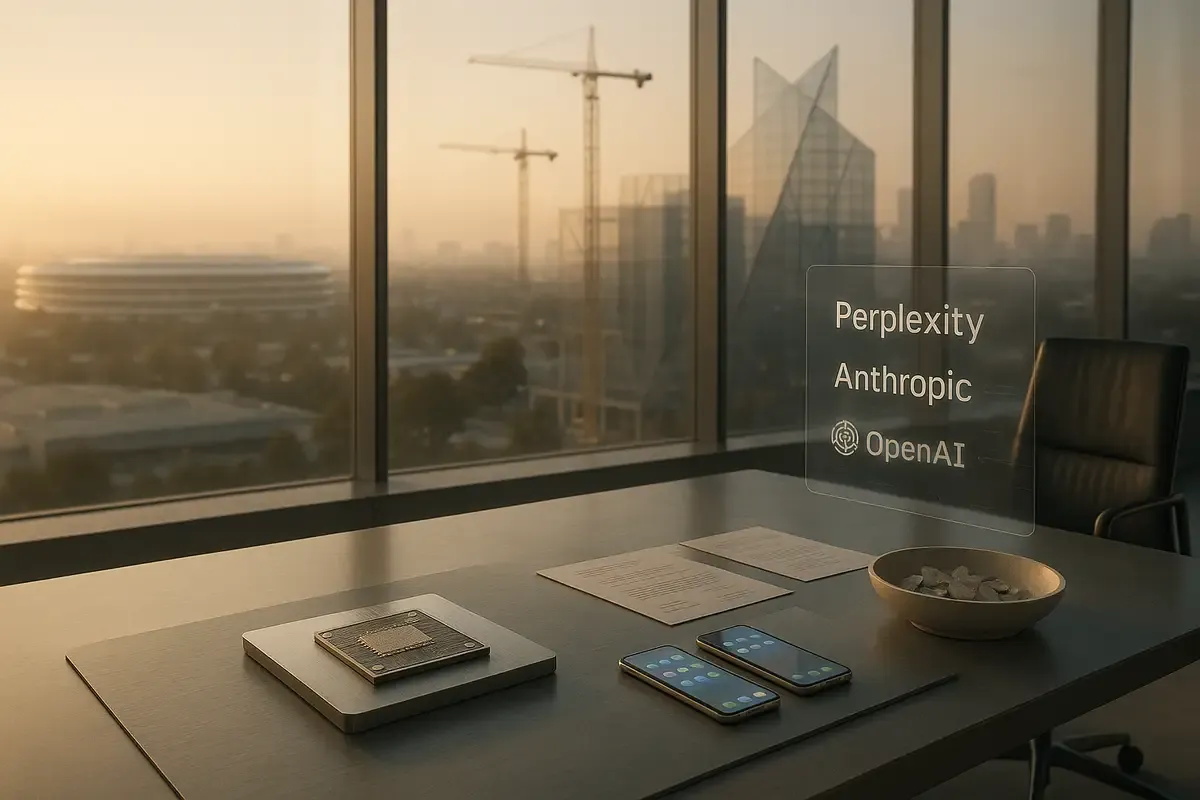💡 TL;DR - The 30 Seconds Version
👉 Apple acquired seven companies this year and Cook says the company is "very open" to more AI acquisitions to accelerate its roadmap.
📊 Apple crushed earnings with $94 billion revenue and 13% iPhone growth, marking its strongest quarterly performance since December 2021.
🏭 Apple projects $14 billion annual AI spending compared to Google's $85 billion and Meta's $72 billion, showing how far behind it is.
📱 The company hit 3 billion iPhones sold since 2007, but iPad sales dropped 8% and wearables fell 8.6%.
💰 Tariff costs hit $800 million this quarter and will reach $1.1 billion next quarter, totaling nearly $2 billion across two quarters.
🚀 Cook insists AI devices will complement the iPhone rather than replace it, defending Apple's most important revenue source.
Apple delivered its strongest quarterly performance in over three years, but CEO Tim Cook spent most of Thursday's earnings call talking about something else entirely: buying his way into the AI race.
The company reported $94 billion in revenue for the April-June quarter, crushing Wall Street's $89.5 billion estimate. iPhone sales jumped 13% to $44.6 billion, marking Apple's best overall growth since December 2021. Yet Cook's most revealing comments weren't about the present success—they were about Apple's urgent push to catch up in artificial intelligence.
"We're very open to M&A that accelerates our roadmap," Cook told analysts. The company has already acquired "around" seven companies this year, though Cook noted none were "huge in terms of dollar amount." Translation: Apple's shopping for AI talent, and the spending spree is just getting started.
The AI Awakening
Cook abandoned Apple's usual caution about acquisitions. The company that always built everything internally now wants to buy what it can't build fast enough.
"We are significantly growing our investments," Cook said about AI. "We're embedding it across our devices, across our platforms and across the company." He added that Apple was "reallocating a fair number of people to focus on AI features within the company."
Apple faces mounting pressure from investors who've watched competitors pour unprecedented sums into AI infrastructure. Google projects $85 billion in capital expenditures for fiscal 2025. Meta estimates up to $72 billion annually. Apple's projected annual spending based on this quarter? About $14 billion.
Apple built the world's most valuable business by controlling every detail. Now it's scrambling to catch up in a technology it didn't see coming.
The iPhone Still Rules
Despite the AI anxiety, Apple's core business delivered exactly what investors wanted to see. The company just shipped its three-billionth iPhone since 2007, a milestone Cook mentioned almost casually during prepared remarks.
iPhone revenue growth of 13% surprised everyone, including Apple itself. The company attributed just one percentage point of its overall 10% revenue growth to customers rushing to buy devices before potential tariff increases. The rest came from genuine demand, particularly for the iPhone 16, which Cook said showed "strong double digits" growth compared to the iPhone 15.
Mac sales grew nearly 15% to $8.05 billion, the fastest growth of any Apple division. Services revenue hit an all-time high of $27.4 billion, up 13%. Even China sales reversed their decline, growing 4% after two quarters of drops.
iPad sales fell 8% to $6.58 billion. The "Other Products" category that includes Apple Watch and AirPods dropped 8.6% to $7.4 billion.
The Talent Wars
Cook's newfound openness to acquisitions comes as Apple faces a brain drain to competitors. Meta has been poaching Apple's top AI engineers, a fact Cook didn't address directly during the call. Bloomberg reported in June that Apple discussed acquiring AI search startup Perplexity, while other reports suggest the company may partner with OpenAI or Anthropic for its revamped Siri.
The urgency is palpable. Apple swapped in Vision Pro head Mike Rockwell to lead AI and Siri in March after the previous team couldn't deliver a reliable product. Cook admitted the company was "making good progress on a more personalized Siri" but offered no timeline for when it might actually work.
When analysts pressed Cook about whether large language models might become commoditized, he refused to answer. "That gives away some things on our strategy," he said. The non-answer revealed more than any detailed response could have.
Defending the Kingdom
Cook spent considerable time pushing back against the idea that AI-powered devices might threaten the iPhone's dominance. Meta CEO Mark Zuckerberg recently suggested AI glasses would become the primary interface for the new technology, leaving smartphone users behind.
"It's difficult to see a world where iPhone's not living in it," Cook responded. "The devices are likely to be complementary devices, not substitution."
The comment reflected both confidence and concern. Apple built its empire on the iPhone generating 47% of total revenue this quarter. Any threat to that franchise represents an existential risk the company can't ignore.
Cook's strategy appears to bet that AI will enhance the iPhone rather than replace it. Apple's approach focuses on "deeply personal, private and seamlessly integrated" AI features rather than the flashy chatbots dominating headlines.
The Tariff Headwind
Strong earnings couldn't mask growing external pressures. Apple paid $800 million in tariff costs during the quarter, less than the expected $900 million but still a significant drag. Cook warned the September quarter could see $1.1 billion in tariff expenses, bringing the two-quarter total to nearly $2 billion.
Apple moved production to India and Vietnam to cut its China dependence. But Trump keeps threatening more tariffs. Cook said Chinese subsidies actually helped Apple's sales there—which is pretty rich given all the trade war noise.
Why this matters:
• Apple's aggressive AI acquisition strategy signals the company knows it's behind and willing to abandon its traditional build-everything-internally approach to catch up
• The iPhone's continued dominance gives Apple time and money to buy its way into AI relevance, but only if Cook can move faster than the company's famously deliberate culture typically allows
❓ Frequently Asked Questions
Q: By how much did Apple beat Wall Street's expectations?
A: Apple's results topped analyst forecasts across the board. Revenue hit $94.04 billion vs. the expected $89.53 billion. Earnings per share reached $1.57 compared to the $1.43 forecast. iPhone revenue was $44.58 billion vs. expectations of $40.22 billion. All major metrics exceeded predictions.
Q: What specific AI companies has Apple acquired this year?
A: Cook didn't name the seven companies Apple acquired, only saying none were "huge in terms of dollar amount." Reports suggest Apple discussed buying AI search startup Perplexity, but no completed deals have been officially announced. Cook said acquisitions happen "every several weeks."
Q: Why is Apple's AI spending so much lower than Google and Meta?
A: Apple uses a "hybrid model" where it relies on partners for some infrastructure instead of building everything itself. Google and Meta also run cloud businesses that rent AI hardware to other companies, requiring massive data center investments that Apple doesn't need.
Q: What happened to iPad and Apple Watch sales?
A: Both product lines took a hit. iPad sales dropped 8% to $6.58 billion even though Apple released a cheaper model in March. The "Other Products" group—which includes Apple Watch, AirPods, and accessories—fell 8.6% to $7.4 billion. Apple didn't explain why.
Q: How exactly do tariffs cost Apple money?
A: Apple pays tariffs when importing devices into the US. The $800 million hit mostly came from Trump's China tariffs that started early this year. Apple shifted production to India and Vietnam to reduce costs, but still faces tariffs on components and finished products.
Q: When will Apple Intelligence actually work properly?
A: Cook said Apple was "making good progress" on a more personalized Siri but gave no timeline. The company delayed its Siri revamp because it wasn't "reliable" enough to launch. Some AI features like live translation are planned for later this year.
Q: What does "3 billion iPhones sold" actually mean?
A: Apple has sold 3 billion iPhones worldwide since launching the device in 2007. The company hit 1 billion sales by 2016, then 2 billion by 2021. The first billion took nine years. The next two billion took just five years.
Q: Who is Mike Rockwell and why is he running Apple's AI efforts?
A: Rockwell previously led Apple's Vision Pro headset development. Apple moved him to head AI and Siri in March after the previous team couldn't deliver a working product. The shuffle shows how seriously Apple takes catching up in AI development.















